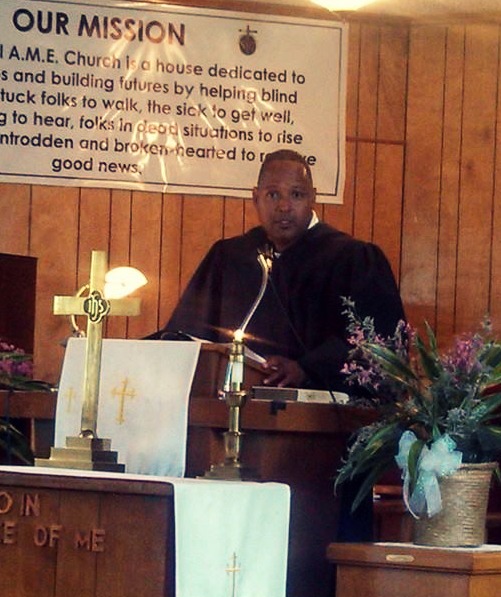The Danger of American Civil Religion
The 2016 presidential election carries with it the enormous gravity of deciding not only who will be the next President of the United States—and, by extension, the leader of the free world—but also of determining if this culturally-constructed public theology that is manifested in the legacy of American Civil Religion (ACR) will undergo a desperately needed reformation. The Donald Trump campaign represents a legacy of American Civil Religion that sees as the “other”—nonwhites, immigrants, LGBTQIA, and women—as outside the tradition of American exceptionalism.
Although patriotism, nationalism, and white supremacy are secularly-based tenets, they have been afforded eschatological preeminence since the arrival of Europeans five centuries ago. Today, these tenets have become a public theology embedded in the United States’ legal framework, customs, and religious practices. The early indication of this public theology is reflected in the fact that white, male, and landowning Protestants, who abided by professed hetero-normative standards, was the only group recognized as fully human.
In addition to the policy differences between the two candidates, a major issue is whether the national theology espoused by Trump—one fastened by white supremacy, sacralized patriotism, and white nationalism—will win on election day. For those of us who dedicate out lives to theological study in the Christian tradition, the Bible offers a counter-narrative for understanding the relevance of civil religion. This narrative, as exhibited in Genesis 1:26: “[Then God said]…Let us make humankind in our image, according to our likeness…”; however, many would-be adherents on both sides of the political aisle have largely failed to make this distinction.
The public religion pronounced in Genesis has been espoused by Dr. Martin Luther King, Fannie Lou Hamer, and an emerging remnant of other Baptized Christians who are living into their faith through their active support of Black Lives Matter (BLM), an overwhelmingly nonviolent social movement that is providing a prophetic witness to the ongoing systemic racism that continues to circumscribe the life chances of black and brown persons in this nation. BLM has performed a liturgy of lament in the streets across this nation. This work of the people has given voice to the pain and frustration of persons for whom justice is not a reality. This movement is a response to the deafening silence of the Church, the institution that has been empowered by the Resurrection power of Jesus to transform the world.
The preeminent issue at stake for this election is not a platform issue of either candidates. The issue is upon what the platform is constructed: Identity. This campaign embodies the ongoing contestation of identity that has been waged since before this nation was a nation. The electorate is responding to the ancient whispers of the meticulously crafted national myth—a myth rooted in misogyny—that asks of Secretary Clinton’s candidacy, “Who gives account for this woman?” It requires that she belong to someone and that she does not possess full human agency.
In a real sense this election has been reduced to a domestic dispute in the public imagination. The dispute began two decades earlier when Bill Clinton’s political scandals surfaced. The nation’s patriarchal gaze focused on Hillary causing her to become the ire of public spectacle, not Bill—the one who transgressed. In ACR’s configuration of what it means to be human, after being white comes male. The linear distance of power that exists between being white male and being white female has been placed on full display during the course of this election.
In this domestic dispute, Donald Trump simply stands in for Bill Clinton during the course of this election—The Donald is the man who gives account for her. This insidious act is performed despite the fact that Secretary Clinton is regarded as the best qualified presidential candidate in modern history.
The power and danger of public theology is that it bestows divine sanctioning onto nationalism. People tend to double-down on their beliefs when they interpret them as being God-ordained.
 by Keith Caldwell, MDiv’15
by Keith Caldwell, MDiv’15